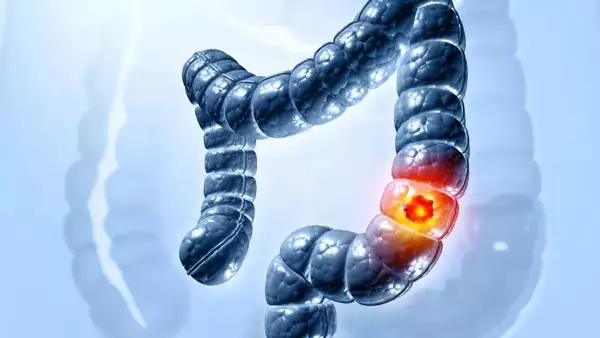In what can be termed a never-seen-before medical miracle, a small group of people with colorectal cancer achieved 100% remission after taking an experimental drug dostarlimab for a period of six months.
The experiment was done on a group of 18 people who found their disease completely vanished after the treatment. The trial was conducted by a group of doctors at Memorial Sloan Kettering Cancer Center, New York. What was surprising about the experiment was that every patient was cured completely without any exception, something that’s not seen very often. The findings of the study were detailed by Dr. Luis A. Diaz Jr. of Memorial Sloan Kettering Cancer Center, an author of a paper in the New England Journal of Medicine.
In 2017, Dr. Diaz designed a clinical trial that inspired this study. It involved 86 people with metastatic cancer, all of whom had a gene mutation preventing DNA repair—found in 4% of cancer patients. They received the drug pembrolizumab for up to two years. In 30-50% of cases, tumors shrank or stabilized, improving survival. In 10%, tumors disappeared completely. Researchers emphasize the need for larger studies but see the 100% remission rate in this small group as a promising sign.
Is dostarlimab effective for all colorectal cancer patients?
While the results of the 2022 trial are promising, does this mean all colorectal cancer patients can benefit from the drug?
Dr Pooja Babbar, Consultant, Medical Oncology, CK Birla Hospital, Gurugram, feels while dostarlimab has been shown to be very effective in a small clinical trial, with a 100% remission rate in patients with a specific subtype of colorectal cancer — mismatch repair-deficient (dMMR) locally advanced rectal cancer, it may not be universally 100% effective for all colorectal cancer cases.
“The trial was done on a small group, and long-term data is still needed to confirm durability and effectiveness in a broader population. The results are groundbreaking, but much more extensive studies are required before it can be termed a guaranteed cure for all colorectal cancers,” says Dr Babbar.
Agrees Dr Amit Javed who says that early clinical trials may have shown promising results, it is crucial to interpret such claims with caution.
“No cancer treatment can guarantee absolute efficacy in all cases, as individual responses vary based on genetic, environmental, and disease-specific factors. Rigorous peer-reviewed studies and larger patient trials are necessary before declaring a drug universally effective,” adds Dr Amit Javed, Director, Gastrointestinal Oncology, Fortis Memorial Research Institute, Gurugram.

How did Dostarlimab help cure colorectal cancer in this trial?
“The mechanism of action of this drug is designed to specifically target and eliminate cancer cells. Many cutting-edge therapies use immunotherapy, precision medicine, or targeted molecular inhibitors to disrupt cancer cell growth. Some drugs work by blocking specific mutations that drive tumor growth, while others enhance the body’s immune system to recognize and destroy cancer cells. By leveraging these approaches, the drug aims to eliminate tumors without harming healthy cells, thereby reducing side effects and improving patient outcomes,” says Dr Javed.
Dr Babbar says the drug blocks the PD-1 receptor on T-cells, preventing cancer cells from evading immune detection and allowing the immune system to recognize and attack cancer cells.
“Dostarlimab is a PD-1 (programmed death-1) immune checkpoint inhibitor. It blocks the PD-1 receptor on T-cells, thereby preventing cancer cells from evading immune detection. In normal circumstances, cancer cells use this pathway to evade destruction. By inhibiting PD-1, Dostarlimab allows the immune system to recognize and attack cancer cells. This mechanism can result in complete tumor regression, as seen in the trial, but only in cancers with high mutational burden, such as dMMR colorectal cancer,”
How to prevent colorectal cancer
While colorectal cancer is on decline overall it’s rising sharply among people under 50. Considering the screening for the cancer is not recommended until 45 years, younger people face higher risk of developing advanced stages of the cancer. Many experts say people in their 30s and 40s are also being diagnosed with colorectal cancer nowadays.
Here are ways to prevent colorectal cancer
Screening and early detection: Routine colonoscopies and stool-based tests, particularly for people over 45 or with a family history.
Dietary changes: Increase in fiber intake, and decrease the consumption of processed and red meat. This is also coupled with the increase in plant-based diet.
Lifestyle changes: Engage in regular physical activity, maintain ideal weight, refrain from smoking, and reduce alcohol consumption.
Genetic counseling: For people with some family history or with Lynch syndrome, genetic testing and appropriate screening at younger ages can prevent death.
Educating and awareness: Increased awareness about being aware of alterations in bowel patterns, blood-filled stools, loss of weight, can lead to early diagnosis and better outcomes.


